Seaview is a film of genre Documentary
Seaview (2009)
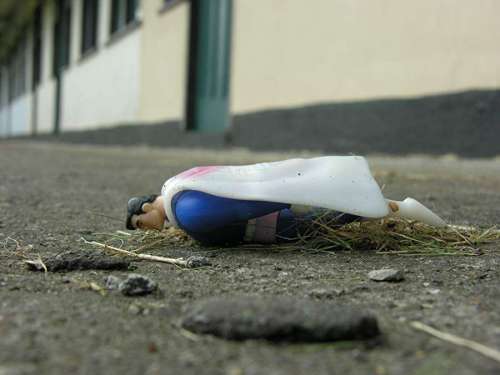
If you like this film, let us know!
- Infos
- Casting
- Technical infos
- Photos
- Videos
- Film quotes
- Characters
- Music
- Awards
Seaview is a 2007 documentary film directed by Nicky Gogan and Paul Rowley. The film chronicles the lives of a group of asylum seekers living in the former Butlin's Holiday Camp at Mosney, Ireland. The film takes an innovative approach to the use to sound and image in telling the stories of the Mosney residents. This has much to do with the past work of the directors, which has been focused on video art and gallery installation projects.
The film premiered in the Forum section of the 2008 Berlin Film Festival and has since shown at many festivals internationally, including Hot Docs in Toronto, Silverdocs, Sheffield Doc-Fest, and the Rio de Janeiro and São Paulo Film Festivals. The film was nominated in the best feature documentary category at the 2009 Irish Film and Television Awards (IFTAs).
Comments
Leave comment :
Suggestions of similar film to Seaview
There are 8974 with the same cinematographic genres, 3242 films with the same themes (including 52 films with the same 3 themes than Seaview), to have finally 70 suggestions of similar films.If you liked Seaview, you will probably like those similar films :
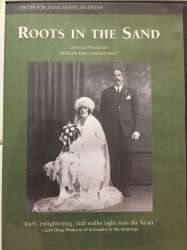
United Gates of America (2007)
, 1hOrigin United-kingdom
Genres Documentary
Themes Films about immigration, Films about racism, Documentary films about racism, Documentary films about law, Documentaire sur une personnalité, Documentary films about cities
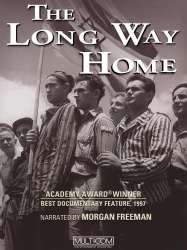
The Long Way Home (1997)
, 2hOrigin USA
Genres War, Documentary, Historical
Themes Films about immigration, Films about religion, Documentary films about law, Documentary films about historical events, Documentaire sur une personnalité, Documentary films about religion, Films about Jews and Judaism
Actors Morgan Freeman, Edward Asnere, Sean Astin, Martin Landau, Miriam Margolyes, David Paymer
Rating74%





Quelques mois avant la Seconde Guerre mondiale, une extraordinaire opération de sauvetage a arraché 10 000 enfants et adolescents juifs au régime nazi. Rapatriés en Grande-Bretagne pour être adoptés, ils durent tisser de nouveaux liens familiaux, supporter les bombardements pour certains, aller libérer leurs propres parents restés en Allemagne. Ils ont tous d'inoubliables histoires à raconter dans ce documentaire.

Lost Boys of Sudan (2003)
, 1h27Genres Documentary
Themes Films set in Africa, Films about children, Films about immigration, Documentary films about law, Documentary films about war, Documentary films about historical events, Documentaire sur une personnalité
Rating74%






Moving the Mountain (1993)
, 1h25Origin Canada
Genres Documentary
Themes Films about immigration, Films about racism, Documentary films about racism, Documentary films about law, Documentaire sur une personnalité, Documentary films about politics, Political films
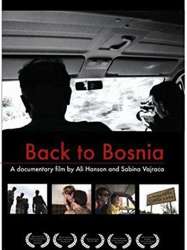
Back to Bosnia (2005)
, 1h15Directed by Sabina Vajrača
Genres War, Documentary
Themes Films about immigration, Documentary films about law, Documentary films about historical events, Documentaire sur une personnalité, Political films
Rating76%





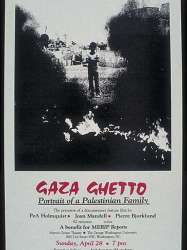
Gaza Ghetto (1984)
Genres Documentary
Themes Films set in Africa, Films about families, Films about immigration, Films about religion, Documentary films about law, Documentary films about war, Documentary films about historical events, Documentaire sur une personnalité, Documentary films about politics, Documentary films about religion, Political films, Films about Jews and Judaism
Rating56%






The Jewish Steppe (2001)
, 16minutesGenres Documentary
Themes Films about immigration, Films about religion, Documentary films about law, Documentary films about historical events, Documentaire sur une personnalité, Documentary films about religion, Political films, Films about Jews and Judaism

Little Alien (2009)
, 1h34Directed by Nina Kusturica
Genres Documentary
Themes Films about immigration, Documentary films about law, Documentaire sur une personnalité
Rating67%





The protagonists are teenagers who undertake a very dangerous journey on their own, fleeing from various crisis regions of the world to Europe. Nina Kusturica conveys a complex picture of the hopes and dreams of adolescent refugees who after their getaway have to face the partly absurd and inhuman bureaucratic system of the European countries. The teenagers Juma, Hishame, Ahmed, Nura, Achmad, Asha, Jawid, and Alem deliver bit by bit insight into their situation and why leaving their home country and their families ultimately was their last resort. Beyond that, the director gives the audience a look behind the scenes, i.e. through the lenses of thermographic cameras belonging to the border police keeping track of clueless refugees, and she accompanies the teenagers to appointments with government agencies.

Bolinao 52 (2007)
Genres Documentary
Themes Films about immigration, Documentary films about law, Documentaire sur une personnalité
Rating75%






Molly & Mobarak (2004)
, 1h25Genres Documentary
Themes Films about immigration, Seafaring films, Transport films, Documentary films about law, Documentaire sur une personnalité
Rating11%





 Connection
Connection